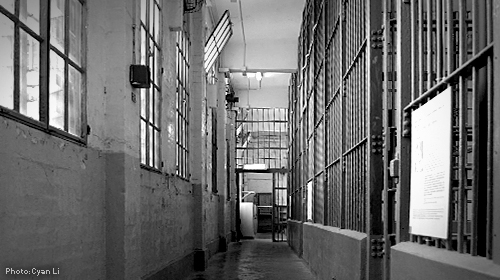Can You Think of a Better Way to Spend $7.2 Billion Than Unnecessarily Locking Up Nonviolent Offenders and Undocumented Immigrants?


The Department of Justice spends $7.2 billion a year to incarcerate over 209,000 people in the federal Bureau of Prisons at a cost of over $30,000 per year per person.
This is unsustainable, both morally and economically.
The majority of these individuals are African-American and Latino. The criminal justice system in this country disproportionately impacts communities of color, perpetuating a harmful legacy of racism that stretches back to our nation's founding.
But there is good news: We know how to reduce the federal prison population and make the system fairer, less costly, and safer. The , created by Congress to address challenges facing the Federal Bureau of Prisons, met to discuss these goals. We presented some of our key recommendations.
First, the Department of Justice must continue to pursue the launched by outgoing Attorney General Eric Holder to reduce unnecessary incarceration of people with low level non-violent drug convictions. " In addition, DOJ should deal with a major and unaddressed category of federal prosecutions – those relating to immigration. Illegal entry and re-entry are now the most prosecuted federal crimes in the United States. Immigration enforcement should be returned to civil authorities.
Second, Congress must support smarter sentencing reforms, such as repealing or reducing all mandatory minimums, reducing sentences for individuals with two prior felony drug convictions from life without parole, and eliminating disparities in sentencing for crack and powder cocaine offenses. These reforms should also include making sentencing reductions retroactive for the current prison population. Almost half of the federal prison population is composed of people convicted of drug offenses. Mandatory sentencing results in excessive prison terms for far too many people, while providing little public safety benefit, at a great expense to tax payers.
Third, the BOP should formally prohibit the use of solitary confinement for juveniles held under federal jurisdiction and implement recommendations from the to reduce the use of solitary for adults. Solitary confinement is widely recognized as a psychologically and physically harmful practice that is often unnecessary to maintain safety inside a facility.
Fourth, Congress should expand BOP's compassionate release program and time credits for good behavior. Reducing inmates' actual time in institutional custody can help reduce the number of people in the federal prison system and, at the same time, incentivize good behavior and educational and rehabilitative efforts for the inmates themselves.
Finally Congress must eliminate legal barriers to reentry for individuals released from prison, and it must adequately fund reentry programming in order to reduce recidivism and ensure that returning citizens have meaningful opportunities to rebuild their lives.
The Colson Task Force faces a formidable challenge – but the time for change is now. We believe that our recommendations, if implemented, would go a long way to address the mass incarceration epidemic at the federal level.
Learn more about sentencing reform and other civil liberties issues: Sign up for breaking news alerts, , and .
